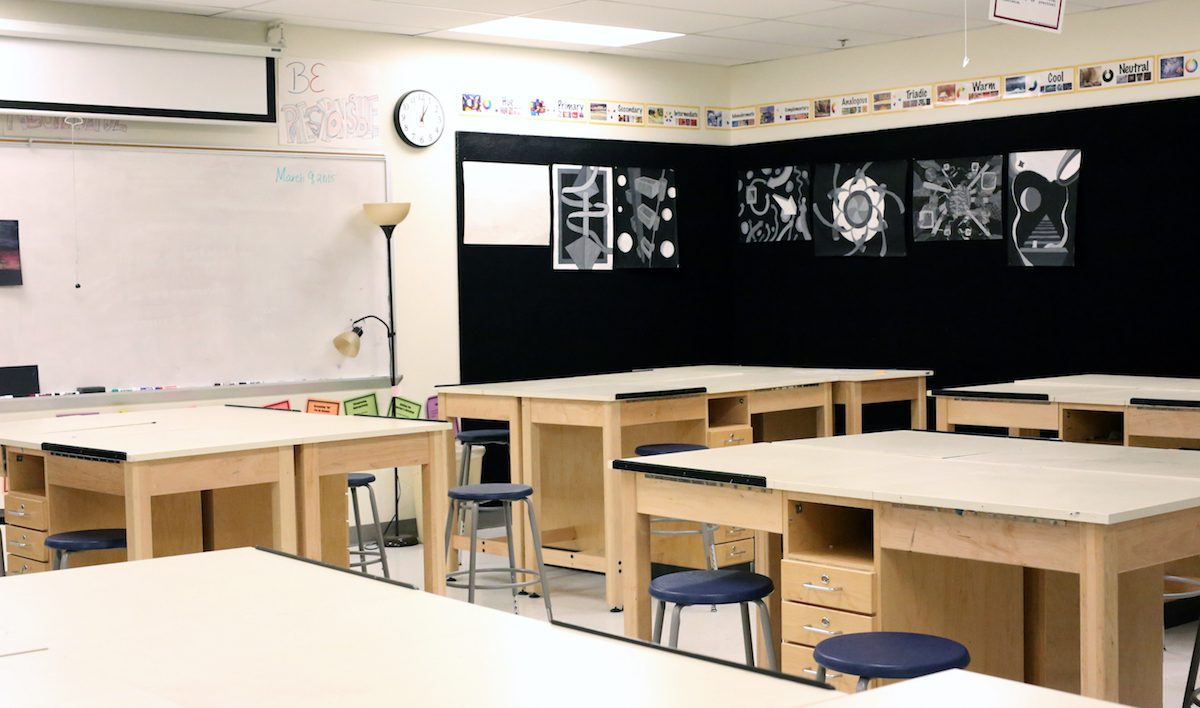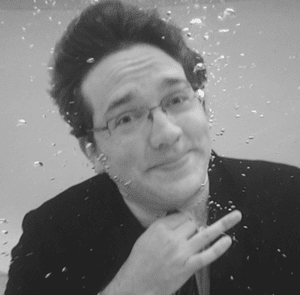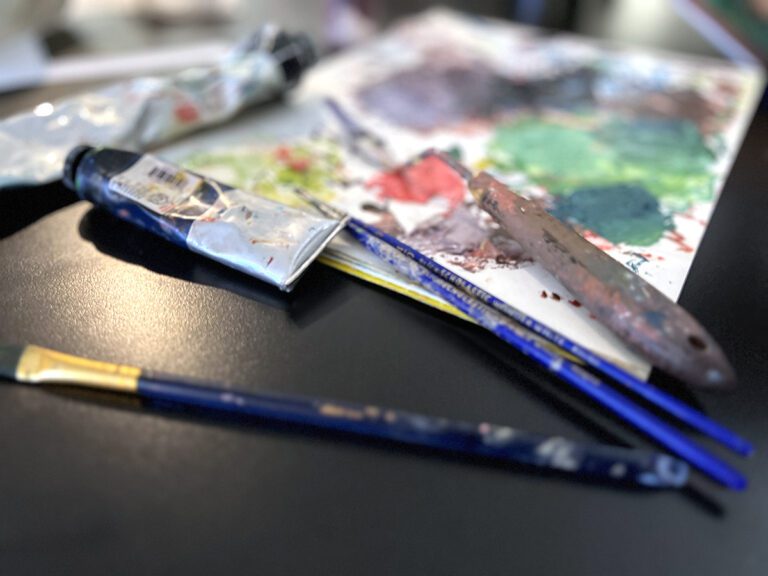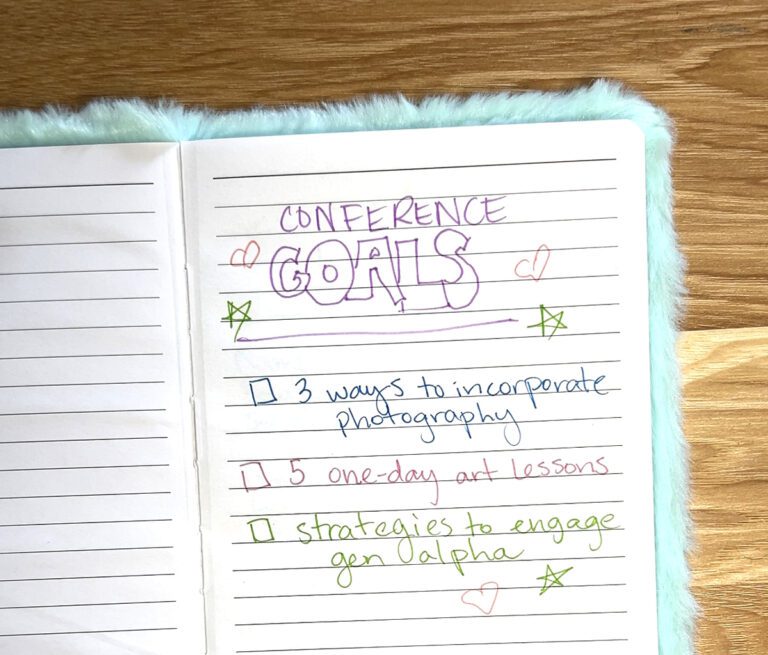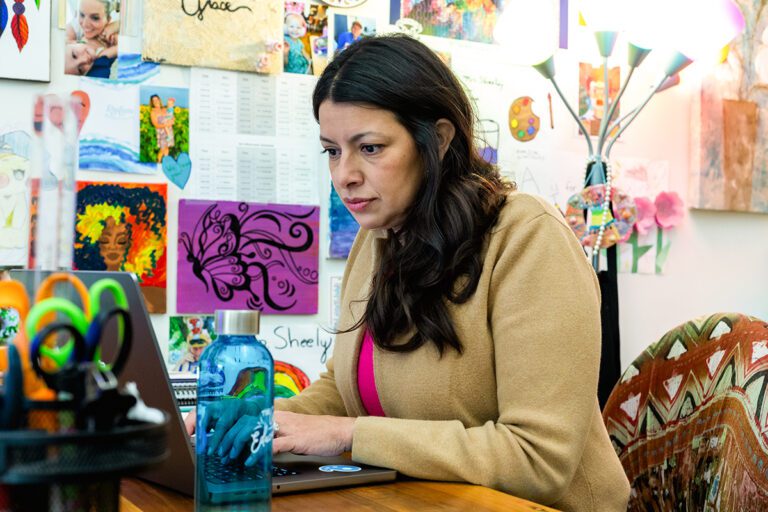Teaching high schoolers can be a scary proposition: disrespect, apathy, and discipline issues abound. But it can also be amazing: incredible talent, high-level thinking and conversation, and a wonderful, creative classroom environment. How do you achieve the latter without dealing with too much of the former? Whether you are moving into the high school for the first time or new to the teaching profession altogether, here are my best pieces of advice to get you started on the right track with your kids.
Here are 13 things you need to know about your first year teaching high school art.
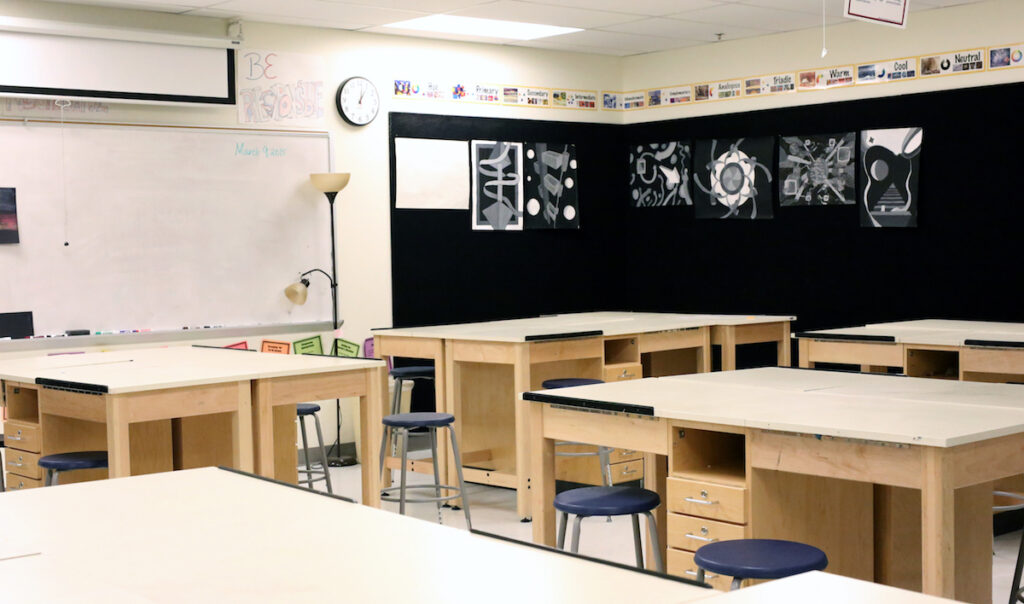
1. Be Authentic
There’s nothing worse than a teacher who is trying to be someone they’re not. Set your boundaries, of course, but don’t be afraid to let your personality show through. Kids appreciate knowing about you, your life, your hobbies, your interests, and your art. Let them learn about who you are because it goes a long way in creating a positive classroom climate.
2. Don’t Be Afraid to Say, “I Don’t Know”
This goes along with being authentic and staying true to who you are; you don’t have to be an expert on everything. You can admit that you don’t know something, and you can find the answer along with your students. The journey of shared discovery will do so much more for you and your students than any halfhearted or made-up answer.
3. Don’t Be Afraid to Say, “No”
It’s important to stand up for yourself and say, “No,” when you don’t have the time or the desire to take on another project or another request. In fact, I recorded a whole podcast on how to say. “No.” You have plenty of things to worry about in your first year; don’t compound your stress by taking on more work you don’t have the passion for or the time to do.
4. Show Kids Your Art
Art teachers are supposed to be artists, right? Show them your work. Students love to see what we do, and they love to know you can walk the walk. Showing the art you create, and introducing your working process opens up so many lines of conversation. You have a chance, like few other teachers in the building, to show kids the essence of what you do and what you love in a tangible way. It is a benefit to you and to them when you open up your sketchbooks, bring in your sculpture, or even just create art right along with them during class.
5. Music Motivates Above All Else
If there is one thing most kids in your class love, it is music. Now, they probably don’t like the same kind of music, but they do love music. So, make it work for you. Do you let kids listen in class? Can you use the theme of music for a lesson or a sketchbook assignment? Can you use it as a reward, or as an incentive? Maybe it’s just a good conversation starter. No matter how you choose to utilize it, music can add so much to your classroom.
6. You Will Be Tired
Elementary art teaching is more physically demanding, but teaching high schoolers drains your emotional and mental energy like no other. There are going to be a lot of nights where you are in bed at 8:00 p.m., and that’s okay. My favorite trick? Take 10 minutes before you leave school for the day to straighten your desk, clean up materials, and get a couple things ready for the next day. It makes a groggy morning arrival SO much easier.
7. Don’t Overdo It with Your Workload
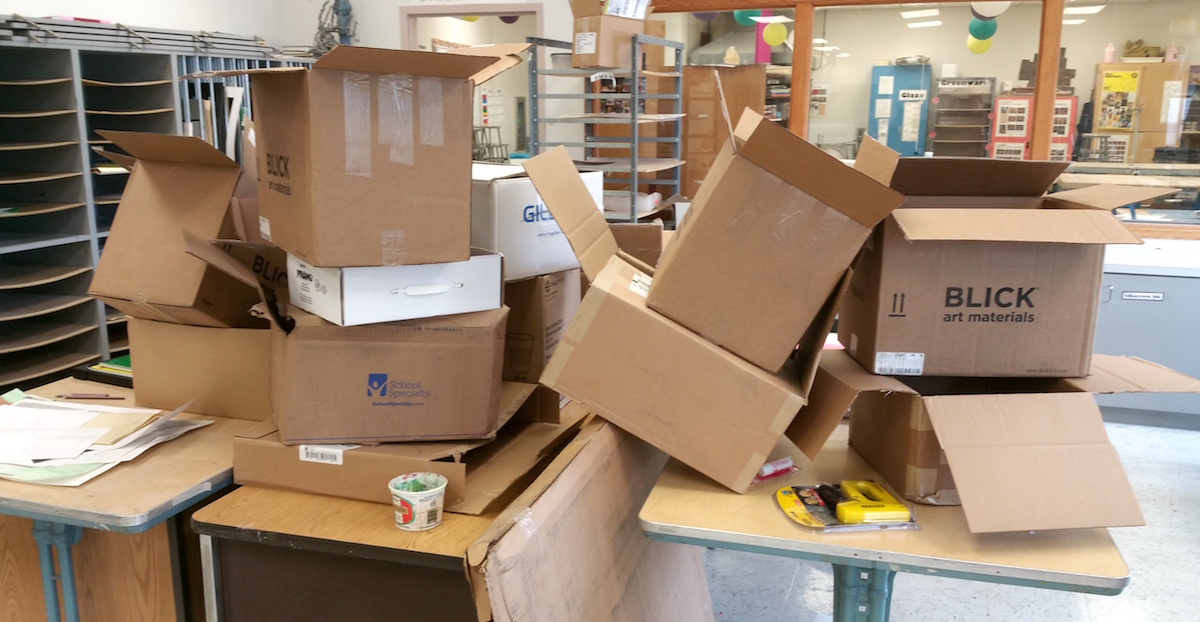
My first year of teaching high school, I worked at least 80 hours every week, sometimes up to 100. Seriously. So I can say with experience: DON’T DO THAT. You run the risk of burning yourself out far too quickly. Grading doesn’t need to be immediate. Your hallway display doesn’t have to be immaculate. Your organization system doesn’t have to be perfect. There are always things to do, and trust me, those things can always wait. Take time to enjoy your life outside of school; do that, and your life inside of school will benefit as a result.
8. Kids Will Skip Your Class
It’s not you—it really isn’t. I always used to take it so personally when kids skipped my class. How can they not love my class? How can they not love me? What they get to do in here is awesome! It’s not about you or your class—they’re skipping because that’s what their friends are doing, or because that is what seems more fun. Don’t let it get to you.
9. Kids Will Let You Down
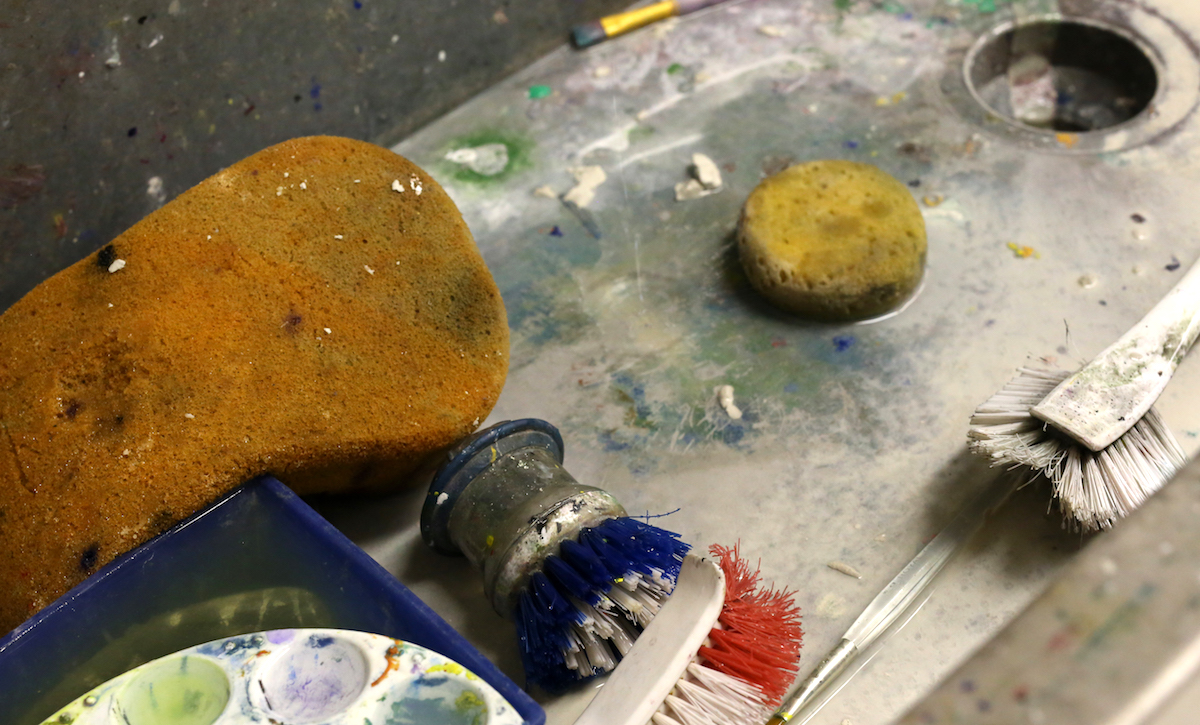
Skipping isn’t the only thing. Your kids will be disrespectful. They will flake out on responsibilities, neglect homework, and sometimes flat-out refuse to do work in your classroom. Sometimes they will do worse. It’s easy to be disappointed in them, and it’s okay to be disappointed in them. Have empathy. Life can be hard—especially as a teenager—and even when you’re disappointed or upset, it helps to show them you understand. A dose of empathy for their situation can help you form a positive relationship, and that relationship will offer so many benefits in the long run.
10. Kids Will Also Amaze You
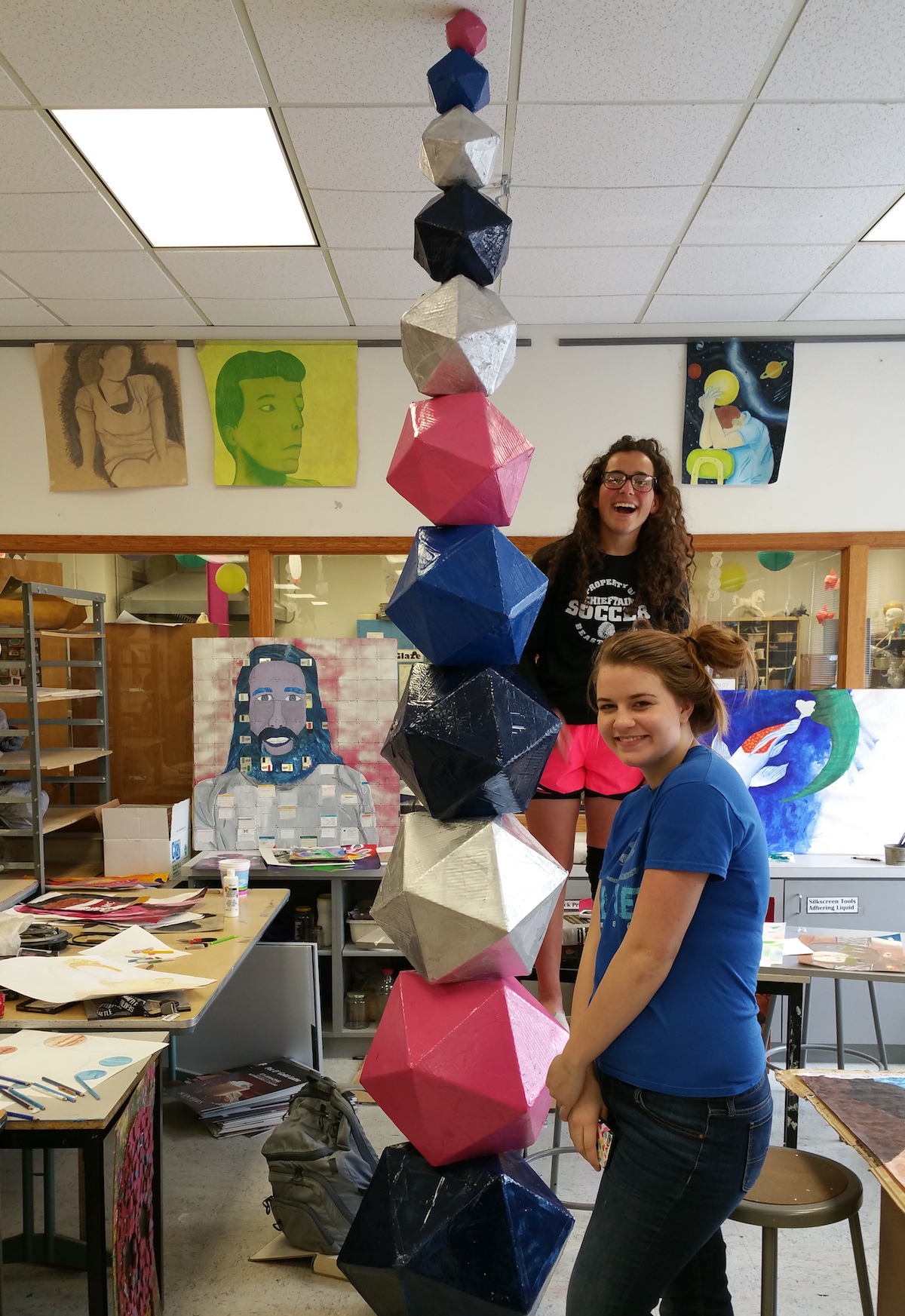
Just when you start to get discouraged, and you start to question yourself, I guarantee one of your kids will do something so amazing it makes it all worth it. It might be something they say, something they do, or something they create, but you will be in awe. Your kids really are unique, and they have an important voice developing inside of them. Art class is the perfect place to let it out, and when they do utilize their voice, you will be able to see and experience some spectacular things.
11. Your Kids Need to Talk About Art
High school kids have opinions about a wide variety of things. It helps when you embrace that fact. Give them open-ended assignments—let them express themselves. They are unique, and they will have a lot to say. Have them talk about the art they make, the process of it, and the art others make. Critiques, peer reviews, discussions, and writing do so much to contribute to the learning process. Don’t let your kids miss out on this opportunity.
12. You Are a Mentor. Not a Friend.
I am a big believer that you should treat high schoolers like adults. There are far too many teachers who are incredibly disrespectful and condescending toward kids. If you allow your kids some autonomy and a voice in your classroom, it will go a long way toward building a positive relationship. But you should not aim to be your kids’ friend. They have plenty of those. They need someone to guide them, teach them, and help them learn to make the right decisions. That’s where you come in. Nothing more.
13. Don’t Forget You Have an Incredible Job
For as many stresses, demands, trials, and tribulations you have during your first year, you will have even more incredible experiences showing you how amazing being an art teacher can be. You have the opportunity to do so much in your role as an artist and educator: you can teach your kids higher order thinking skills, creativity, and problem-solving in ways few other subjects can. Even if your class is the only art class a kid ever takes, those skills will stay with them forever.
Art class is unique. Art class is memorable. Art class is amazing. The art teacher is all of these things and more. Don’t forget, even in your first year, you have the ability to do incredible things.
First Year Teachers: What worries you the most about your first year with high schoolers?
Veteran Teachers: What advice would you add to this list?
Magazine articles and podcasts are opinions of professional education contributors and do not necessarily represent the position of the Art of Education University (AOEU) or its academic offerings. Contributors use terms in the way they are most often talked about in the scope of their educational experiences.
